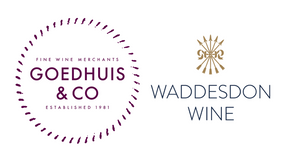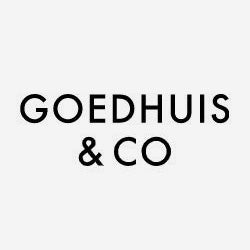
Following the success of our 2006 German offer last autumn, Ernie Loosen decided to drop by to guide us through a tutored tasting of several of his vineyards and vintages.
I was the only lucky one from Goedhuis & Co. to visit his glorious vineyards first hand last July. Accordingly, it was true enlightenment for some of the team to sit down with the master himself. Though Ernie is a well known character, for those not in the know, he is the owner and manager of his family domaine Dr. Loosen in the Mosel as well as manager of JL Wolf domaine in the Pfalz. Because of his communicative, charismatic personality, he has also become a leading spokesman for German wine. His determination, savoir faire and passion have helped quality German wines throw the shackles off their less-than-stellar reputation. Though top German wines from fastidious growers have more or less always remained excellent, their ‘brand’ as a whole was terribly tarnished by bulk wines produced in the 70s (Liebfraumilch, anyone?).
Luckily, these wonderful wines are coming back into the limelight particularly as consumers are seeking wines with less alcohol. Like most wines from the Mosel, most of Ernst’s cuvees are only 8-9%. As Ernie says, “After a long, indulgent dinner, they are the perfect wines to make you sober.” The crisp acidity wonderfully balances the gentle residual sugar, enabling them to finish clean and dry – ‘digeste’ as the French would say. As a result, they make wonderful wines as aperitifs but can easily accompany spicy Asian food, foie gras, sweet-sour concoctions or lighter fruit-based desserts.
We must admit that being French specialists, we were concerned that German wines might appear a bit esoteric on our list. Yet, this tasting further emphasised the similarities between the two, particularly Burgundy. It is no secret that red Burgundy lovers often quote Riesling as their favourite white grape. Even Ernie himself, a whole hearted Burgundy aficionado, compared the two as mirrors of terroir and how they age. He expressed that as Riesling matures, it takes on attractive forest floor aromas and often a light caramelised character while becoming drier on the palate. When Burgundy ages, its flavour profile shows similar characters yet it often becomes a bit sweeter – wonderfully complementary.
Needless to say, Ernie’s Rieslings slipped down easily. Despite having spittoons clearly laid out on the table, they were not used to their full capacity (guilty as charged!). Even those at Goedhuis & Co. who know German wine less well were truly impressed. It seems that 2007 promises very good results with lots of racy purity and clean cut fruit flavours. They should be available in late spring, so watch this space!

 Written By
Written By